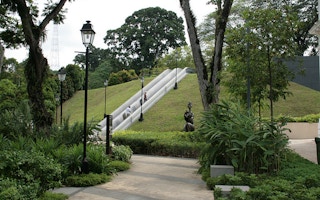The design of urban environments is increasingly being viewed as a mental health issue. According to the American Psychiatric Association, researchers are drawing direct links between depression and loneliness and the configuration of urban environments.
While some designs can worsen mental health, there are steps cities can take to improve well-being, the article says. Green space and tree-lined roads are found to have a calming effect on stressed city dwellers. High-density living and robust public transport ensures that even the most isolated residents have human interaction and mobility.
Click here for more information on how to participate in the Urban Mind Project, a pilot study on urban living and mental health spearheaded by King’s College London. The World Health Organisation Collaborating Centre recently published a detailed guide on strategies for integrating health and wellness into urban planning.
This story was published with permission from Citiscope, a nonprofit news outlet that covers innovations in cities around the world. More at Citiscope.org










